How to License Your Music to TV & Film – 11 Steps | Sync Songwriter
September 22, 2019
Learn How to License Your Music for TV & Film in 11 Steps
The secret to making a viable living as a songwriter is learning how to license your music for TV and film. On top of the massive exposure that comes from this, the payment you receive is much higher than you could make through other sources such as streaming royalties.
Music supervisors are the gatekeepers who decide what music makes it into TV and film. They work as the middleman between artists and directors, finding music on behalf of a production’s creative team.
the soundtrack for derry girls is something i appreciate and very much admire; s/o to the shows music supervisor(s)
— Sara Placuszok (@itssaraaax) September 9, 2019
Because of their importance, forming a strong relationship with music supervisors is the best way to get sync placements with your music. However, it’s important to take the necessary steps in preparing your music and approaching music supervisors.
It’s not complicated but many music supervisors prefer to be approached in a specific fashion. Failing to do so could mean no response or even worse, getting blacklisted in their email inbox.
This can make the task of licensing music daunting to the indie songwriter.
Music licensing can be a great way for indie artists and songwriters like you to get their music heard and generate additional revenue streams. Getting your music placed in TV shows and films can be especially lucrative, but it can be a difficult process to navigate.
In this article, we’ll outline the steps you need to take in order to successfully license your music in TV and film.
If you follow the steps below, you’ll have nothing to worry about when learning how to license your music:
- Professional Recording of Your Music
- Get Instrumental Mixes
- Copyright Your Music
- Register With A Performance Rights Organization
- Choose The Proper Format
- Include Metadata
- Network and Build Your Reputation
- Research Who You’re Pitching To
- Write Personal Emails (Don’t Spam)
- Respond Quickly
- Be Patient!
Doing this will give you a huge edge on the competition and you’ll be well on your way to sync success!
1. Professional Recordings of Your Music
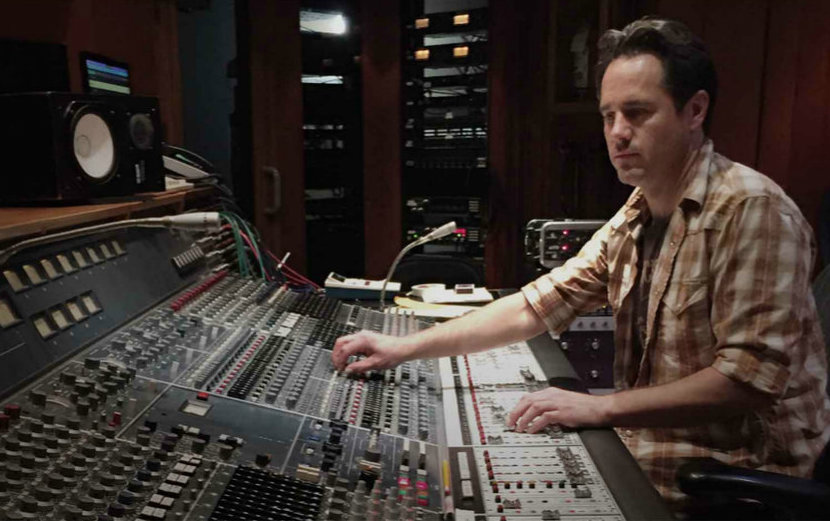
This first step is “the” most important step you need to take in learning how to license your music for TV and film.
Before you start submitting your music to licensing opportunities, it’s important to ensure that your music is high-quality and well-produced. You must have a good recording of a good song. When submitting to music supervisors, you’ll be competing against some of the biggest names in the business.
TV and film producers are looking for music that is professional and polished, and stands out, so make sure that your recordings are up to par.
Yes, there is a small market for lo-fi indie recordings and vintage recordings throughout the last 7 decades. However, the market for commercial, professionally produced productions is much bigger.
If you want your music licensed with any production big or small, you must invest time and money into the recording process. If you’re not sure whether your music is ready for licensing, consider working with a producer or engineer to get your tracks polished and ready for submission.
You may have heard it said that “the more songs you have, the better.” There’s some truth in this. A large catalog of songs can help your chances of getting synched. However, all the songs must have quality production if you want to be taken seriously by music supervisors.
Thankfully, there are places out there that offer commercial-grade recordings at an affordable rate.
Our sister site, Sundown Sessions Studio, connects songwriters with award-winning engineers and many of the best sessions musicians from around the world. The professional edge it gives you is invaluable, and the cost is low enough to be made back in your first couple of sync placements.
2. Get Instrumental Mixes
Having instrumental mixes is an important step in learning how to license your music for TV and film. It makes it much easier to license your music.
Many people don’t realize how important this is but failing to ask for instrumental mixes early on can mean not licensing your music with certain music supervisors.

Often times a film or TV show may have a dialogu- heavy scene but still require music. Because of this, the creative team won’t want something with lyrics or vocals that could get in the way of the story.
Your song may be the right energy and the exact sound that the music supervisor is looking for. However, you may be asked to send over instrumentals to cut between the lyrics and music as the director sees fit.
Things move fast in the music licensing world, so if you don’t have instrumental versions of your music as soon as they ask for them, chances are they’ll move on to another artist.
To avoid this happening to you, make sure you ask your mixing and mastering engineers for instrumental versions of your songs when you’re in the final stages of the music production process.
Finally, if you really want to future-proof your music against any licensing scenario, ask your mixing engineer to print stems with each element of your mix. This can only give a production’s creative team more flexibility when making a song fit with a scene.
3. Copyright Your Music

This is an integral step whether you’re planning to license your music for TV and film or not. If you’re releasing your songs in any capacity, you want to make sure they are properly protected.
Not only that but you’re not likely to find someone willing to license your music if you don’t have a proper copyright in place. Doing so can take time and once again, waiting until you’re asked by a music supervisor to do so means they won’t have time to wait and will move on.
It’s also important to understand that there are two types of copyright from which you can collect money. Learning how you can benefit from both ensures you make the most amount of money possible when licensing your music.
- The first is known as a PA Copyright. This protects the music and lyrics, that is to say, the composition itself.
- The second is called a Sound Recording Copyright, which protects any recordings you make of the song.
Check out the video below for a brief interview with entertainment lawyer, Cheryl Hodgson on the subject.
If you enjoy her thoughts and want to learn more, be sure to check out part one and part two of our recent full-length interview with Cheryl.
4. Register With A Performance Rights Organization (PRO)
When your music is used on TV or film, a licensing fee isn’t the only income you’ll receive. You can also make a certain amount of performance royalties anytime your song is aired.
This is where a Performance Rights Organization (PRO) comes in. It’s their job to collect royalties on behalf of songwriters and rights holders, then pay the monies to the correct parties.
Which Performance Rights Organization are you with?#ascap #bmi #sesac #pro #publishing #musicpublishing #musicartist #musicproducer #rapper #singers #songwriters #songwriter #beatmaker #singer #rappers pic.twitter.com/lGkMM3hk5e
— CentricBeats (@CentricBeats) September 5, 2019
So, before you start licensing your music, you need to make sure that you have the legal right to do so, and your music is registered properly with your PRO so you can make as much money as possible from your music.
- The three major PROs in the United States are ASCAP, BMI and SESAC.
- In Canada, it’s an organization known as SOCAN.
- For our international friends, you can track down your country’s PRO here.
We delve a little deeper into this topic with our a recent interview with Paul Stillo from SOCAN.
5. Choose The Proper Format
Having the proper file format is another important part of learning how to license your music for TV and film.

When submitting your songs to music supervisors for consideration, you don’t want to bother them with large downloads or email attachments. Never add an attachment when you send emails to a music supervisor!
Instead…
- Export an MP3 of your tracks with a bit rate of between 192/kbps and 256/kbps.
- Then upload the track to a cloud drive like Dropbox, Disco or Box and include a link to the file in your email.
- Make sure that whatever service you use doesn’t require the user to make an account or log in. They should be able to easily listen to and then download the music without jumping through any hoops.
Music supervisors don’t want their inboxes littered with attachments and doing so is a sure-fire way to get your email deleted!
Once a music supervisor decides to license your music, then they will ask for a higher-resolution file.
- Be sure to have a master .wav file of your music ready for when this happens in at least 16-bit / 44.1kHz.
6. Include Metadata
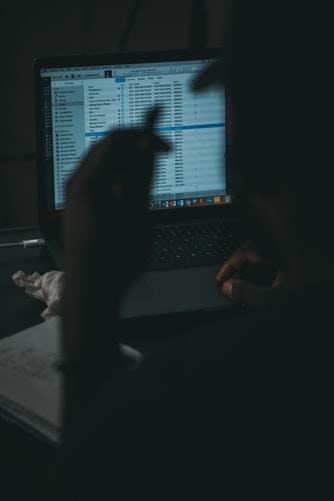
Another important reason to use an MP3 when pitching your songs to music supervisors is the ability to embed metadata.
Metadata is important information on your songs, such as the artist’s name, songwriters and contact info, copyright holders, genre, BPM, and lyrics.
Not only will having the right metadata help music supervisors find your music when searching through their catalogue for a specific type of song, but it will also give them the necessary information on the creator once a song catches their interest.
Because of this, one of the most important things to include in the metadata is your contact information. A music supervisor may come across your song and hope to use it for a project sometimes months or even years after you submit it to them.
However, at this point, they won’t remember who sent it and without any obvious contact info in the metadata, they’re more likely to use another track than try to find you.
Bonus Tip – ONE-STOP
If you own both the publishing and the master to a song this is known as a “ONE-STOP” track. Music supervisors love this as it makes the licensing process much easier. So, be sure to mention that in the metadata as well.
For more information on how to use metadata when licensing your music, check out our previous article on the topic.
7. Network and Build Your Reputation

This part of the process of learning how to license your music for TV and film takes plenty of time and never really stops for your entire career.
Once you have a great song and all the prep work is in order, you need to find music supervisors looking for songs so you can send it to them.
One of the best ways to get your music licensed in TV and film is to network with industry professionals. Forming relationships in the industry takes time and it can make or break your success as a songwriter. Go to as many industry events as possible, whether that be conventions, music or film festivals, or even online conferences.
When you’re in these environments, make an effort to get to know the people involved. Reach out to music supervisors and music licensing companies. Make sure that you have a professional-looking website and social media presence and make it easy for industry professionals to contact you.
Networking is one of the most important things in the music industry.
Regardless of what stage you’re currently at in your music career, you should be networking.
The opportunities that become available due to being in the right circles are incredible.
— Beats4Lyricists (@ICProductionz) August 15, 2019
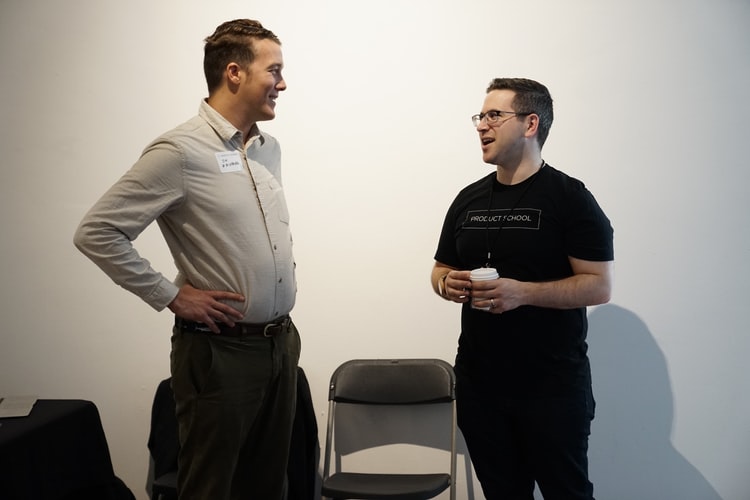
In the case of licensing for TV and film, you want to network with music supervisors and build a strong reputation for your music with them.
This is easier said than done but the more you do it the easier it gets. The more people you know, the better chance you have of building credibility through mutual connections.
The video below has some great tips on how you can build credibility as a songwriter early on in your music career.
Although there’s no shortcut in the networking world there are some key environments that can really expand the people you know.
In our course, The Art of The Song Pitch, not only do we teach songwriters how to approach music supervisors and pitch their songs, but we also personally introduce you to some of the industry’s biggest players in the music supervision realm.
8. Research Who You’re Pitching To
Once you’ve gathered a list of potential music supervisors to approach, you’ll want to do a little digging into who they are.

Find out what shows they’ve worked on in the past and what type of music they tend to sync. It’s also integral to find out what projects they’re currently working on and what music style the project requires.
This information may require a little digging to uncover. However, if the music supervisor happens to be on IMDb it’ll make things a whole lot easier.
Bonus Tip – Other Pitching Opportunities
There are many different types of music licensing opportunities in TV and film. For example, your music could be used in a TV show, a movie, a commercial, or a video game. Research the different types of licensing opportunities that are available, and make sure that your music is a good fit for the opportunity.
There are also many different ways to get your music placed in TV shows and films, so it’s important to do your research and find the right opportunities for your music. Besides music supervisors, some other places to consider researching include music libraries, sync agents, and music placement companies. You can also reach out directly to TV and film production companies to see if they are looking for music.
Once you know more about whom you’re pitching to, you’ll be able to approach them with songs that are best suited to their niche. Not only that but it will be easy to write effective, personalized emails. This leads us to our next tip.
9. Write Personal Emails (Don’t Spam)
Music supervisors can receive hundreds of emails every day. So, it’s easy for them to spot impersonal, cookie-cutter emails that you’ve copied and pasted to every music supervisor on your list.
In the case of pitching your songs, the quality of the emails sent is much more important than the quantity.
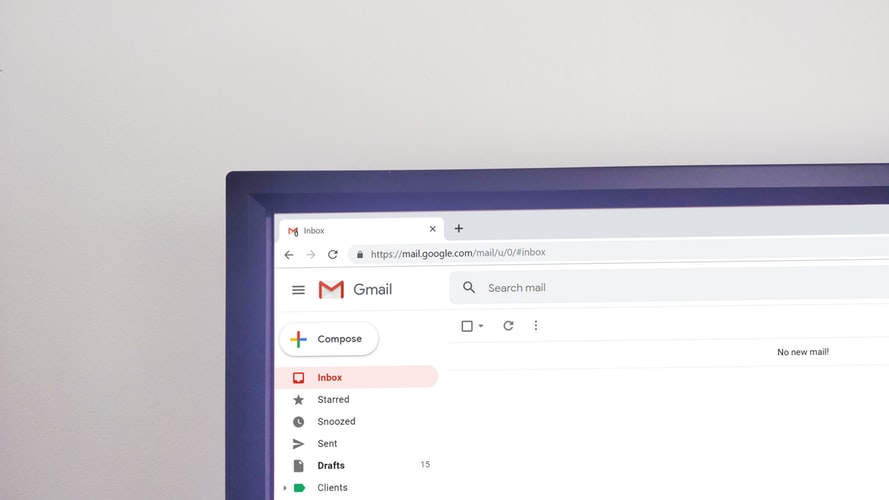
Once you’ve researched a music supervisor, this part shouldn’t be too difficult. If you’ve done your research well, you should know something about them and their work. Take the time to compliment them on their past shows they’ve worked on and acknowledge any current projects your music may fit into.
Mentioning a song that they’ve licensed in the past that is similar to your own music can be a great segue into introducing your catalog.
Above all else, don’t spam them with irrelevant music! If you know that a music supervisor primarily works with indie rock or folk music for their current projects don’t send them a bunch of hip-hop tracks.
Doing so is a sure-fire way to get yourself blacklisted in their inbox. If this happens, they’ll never see any future emails you send them, and you’ll have ruined what could’ve been a great industry relationship.
Bonus Tip – Pitching Your Music Elsewhere
Depending on the type of music you produce, there may also be opportunities to submit your songs to music libraries, pitch your music to sync agents or music sync briefs, or send your music directly to production companies. Make sure you understand and follow their submission guidelines carefully and provide all the necessary information about your music, including the rights you have to the songs and proper metadata.
Bonus Tip 2 – Keep Promoting Your Music
It’s important to keep building relationships with TV and film producers, music supervisors, and other industry professionals. Keep promoting your music and seeking out new licensing opportunities for your music. Share the news on your website and social media accounts and consider reaching out to local media outlets. The more exposure your music gets, the more likely it is that you’ll be able to license it in the future.
10. Respond Quickly
Once you do get a response from a music supervisor whether it be to license your music or just ask you a question, respond right away!
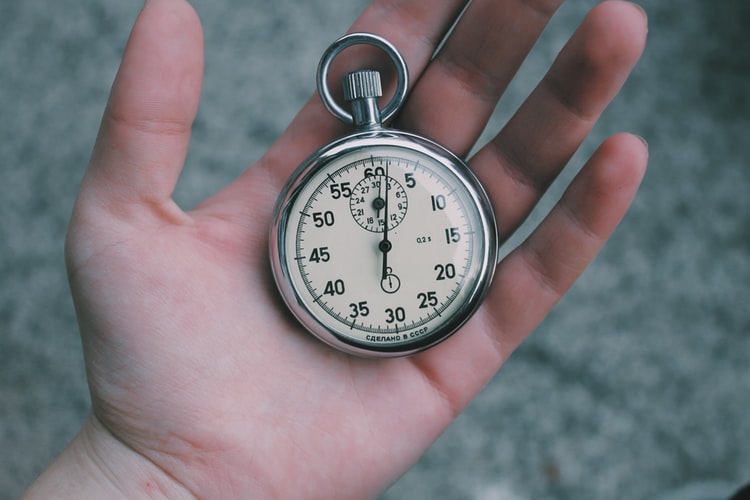
As previously mentioned, the sync world moves fast, and music supervisors don’t have time to wait around. The better you are at communication, the more likely you are to have your songs placed in TV and film.
You want to build a reputation with music supervisors as being quick to respond, having great music, and being easy to work with. Once you do, there’s a good chance they’ll want to work with you more in the future.
11. Be Patient!
Part of learning how to license your music for TV and film is developing patience. It’s rare that a songwriter has their music licensed to a TV show or film in the first few attempts. It can take months or much longer to get a response and more time to actually get a sync placement.

As with any area of the music industry, it takes time to make contacts, learn the process, and build a reputation. The good news, however, is that it only gets easier and quicker the more you do it.
So, don’t get discouraged if your first few sync licensing pitches don’t pan out to anything. What’s important is that you’re consistent, committed, and have a positive outlook on the process.
This is the real secret to success when you’re learning how to license your music. Watch the video below for some additional thoughts on what it means to be consistent in your music licensing efforts.
Conclusion: How to License Your Music
The process of getting your music licensed to TV and film is a long but rewarding process.
Once you have your music professionally recorded, copyrighted and registered with a PRO, be sure to prepare your files in the proper format with embedded metadata.
After your music has been properly prepared, start networking and researching music supervisors who deal specifically with your genre. When you’re finally ready to reach out, make your emails personal and don’t spam them with unnecessary music.
If they reply to you, be sure to respond as quickly as possible and above all else, be patient. Getting your first piece of music licensed can take a lot of hard work and it’s easy to get discouraged.
Getting your first piece of music licensed can take a lot of hard work and it’s easy to get discouraged. But don’t be. Once you finally have a piece of music synced in a TV or film project, it’s an awesome feeling and the process will only get easier from then on.
If you liked the tips in this How to License Your Music article, be sure to check out the rest of the Sync Songwriter blog for more songwriting tips and industry insights.
Getting your first piece of music licensed can take a lot of hard work and it’s easy to get discouraged. But don’t be. Once you finally have a piece of music synced in a TV or film project, it’s an awesome feeling and the process will only get easier from then on.
If you liked the tips in this How to License Your Music article, be sure to check out the rest of the Sync Songwriter blog for more songwriting tips and industry insights.
BONUS STEPS to licensing your music
Once you have learned how to license your music and you are successful, here are some additional tips to keep in mind.
Negotiate The Terms of The License
If your music is selected for use in a TV show or film, you’ll need to negotiate the terms of the license. This can include factors like how long your music will be used, how it will be used (e.g. as background music, during a key scene), and how much you will be paid for the use of your music. It’s important to have a clear understanding of these terms before you agree to any licensing deal. Make sure that you read the contract carefully, and don’t be afraid to ask questions or negotiate terms that don’t work for you. Consider working with a lawyer who specializes in music licensing to ensure that you’re getting a fair deal.
Sign the Music Licensing Agreement
Once you’ve negotiated the terms of the license and you’re happy with the deal, it’s time to sign the license agreement. This legally binds you to the terms of the agreement, so make sure you read it carefully before signing. You may even want to have an entertainment lawyer review the contract.
Get Your Music Ready for Distribution
Once your music has been licensed, you may want to prepare it for release and distribution if it hasn’t already been released. Make sure your song is available for download on your website, social media channels, and popular streaming services like Spotify and iTunes. Your song’s exposure in the TV or film project can win you a lot of fans so make sure they can find your music!
Track Your Royalties & Payments
After your music has been licensed and used in a TV show or film, you’ll start earning royalties and payments for the use of your music. Your PRO will collect royalties on your behalf, but you’ll need to make sure that they’re paying you the correct amount. Keep track of where your music is being used, and make sure that your PRO is reporting those uses accurately.
Leave a Reply
Hey! Give us a shout about anything really.
contact Sync Songwriter
Our goal is for you to start getting your music into TV & film.
Excellent blog! This has nothing but relevant information for all of us trying to make a go at music licensing! Thank you!
Chris, your information here and all of your other posts have been so helpful and has made me think that I can actually do this. Thank you for being so generous with the information. You are a person after my own heart.
Hi Chris, great job of building a workflow we all can all follow that is sincere and down-to-earth (or down-to-water if you live on a boat). Thank you.
Dear Chris,
This blog is just amazing!! Almost everything required in Sync licencing you have covered here. So many things I had not known!! It has given me not only a full insight but also the confidence to move forward! Currently in the recording stages in the aim of having a bank of professionally recorded songs (hoping to complete by the end of the year) and then ready to put all your brilliant ideas into action!! I must also add that all your posts are brilliant!! Thank you Chris from the bottom of my heart!!!
Great job for bringing this blueprint to the forefront, we normally have to pick pieces from here and there to build our own puzzle and find our way through this "complex sync maze mayhem" but you’ve managed to give this a 11 step compression for our minds. This is a bundled goldmine! Thank you Chris!
Hi Chris,
I didn’t know how to start and that made me really sick because I knew I need to do something with it and start building my network of music supes in order to get sync someday.
I already have several big brands licensed my band’s music so the first steps are made (not by me but our partners). But your inspiring article and your personal story made me believe in my own strength and ability to find sync opportunities on my own. And that’s incredible! Thank you for that! Just subscribed to your youtube and blog!
Greaat read thanks
Thanks great bloog
Hi Chris, your articles are very informative.
Question: If a songwriter has a song that an organization wants to use, can the composer negotiate the license privately without going through BMI, ASCAP, etc?